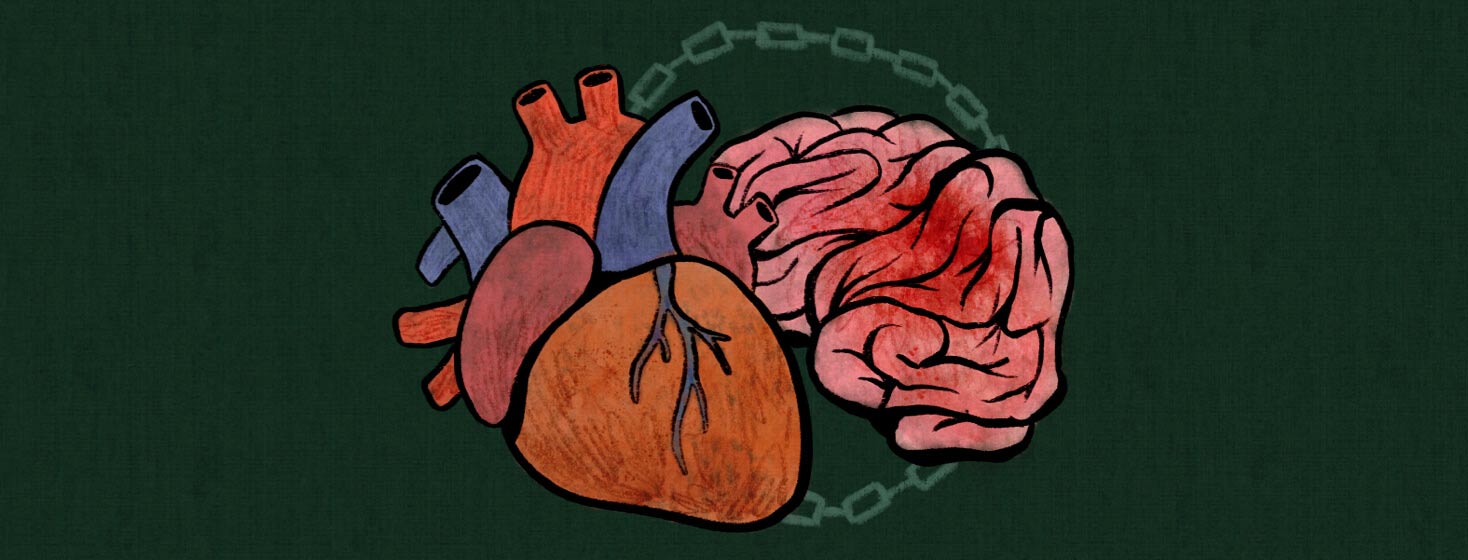Heart Failure and Stroke
Last month, I learned the hard way that heart failure can increase your risk of stroke. Near the end of last month, I had a stroke and was lucky enough to get to the hospital in time to take the medication that breaks up the clot that was in my brain.
Where did the clot come from?
I had neurologists and cardiologists working on finding a reason that I had the stroke. The neurologists were unsure what the reason for the stroke was, but my cardiologist had his own idea of what could have caused it. Unfortunately, it’s not always an easy answer to come up with. Did the clot form in my brain or did it come from somewhere else in my body?
My cardiologist's theory
In the heart
My cardiologist came up with the theory the clot was formed in my heart and traveled to my brain. He stated this was because, like with most people with heart failure, my heart is enlarged somewhat from my condition. This, combined with a lower ejection fraction, leaves more blood in my heart chambers between beats which, in turn, increases the chance of a clot being formed.
Staying vigilant
While this chance is lower than someone with AFib, it still increases the chance. It is important to recognize that we have many different things that can happen when you have heart failure, and it’s important to stay vigilant in our health to minimize those risks.
Scary and expensive
Worth talking about
This was a very scary and expensive lesson I had to learn. Thankfully, I was able to be put on Eliquis instead of Warfarin so I don’t have to worry about weekly blood tests and my vitamin K intake. Is this a medication I think we should all be on? Not at all. Do I think it’s something worth talking to your doctor about? Absolutely.
Being aware
I wouldn’t expect any of your doctors to put you on an anticoagulant medication if there wasn’t a strong indication you needed it, but it never hurts to ask. This isn’t meant to cause any extra anxiety or stress over our condition. The best thing to do is be aware of yourself and your body.
Things that might help
Keeping up with medication
There are ways to prevent having a stroke that could have helped me. The first thing is to make sure you are compliant with your medication. Not only will this help prevent a stroke, but can help prevent other complications of heart failure.
Paying for it
I have never been good a keeping up consistently with my medication, and I have paid for it about every 4-5 years with some kind of event. If the blood clot formed in my heart, would my medication have even prevented it? That is difficult to say with certainty, but I am willing to bet it would have. Even if it wouldn’t have, it couldn’t have caused it to be any worse than it was.
A possibility
As I said, this isn’t meant to scare you about something you may not be able to control but to put it in your mind this is a possibility. There is no reason you should fear something you may not have control over, but it can be used to open a discussion with your doctor.
Your doctor has no reason to lie to you, so if they think you are not at a very high risk of a stroke, you should take that as a relief. Just be aware of your body and symptoms like you always do and don’t stress over it.

Join the conversation